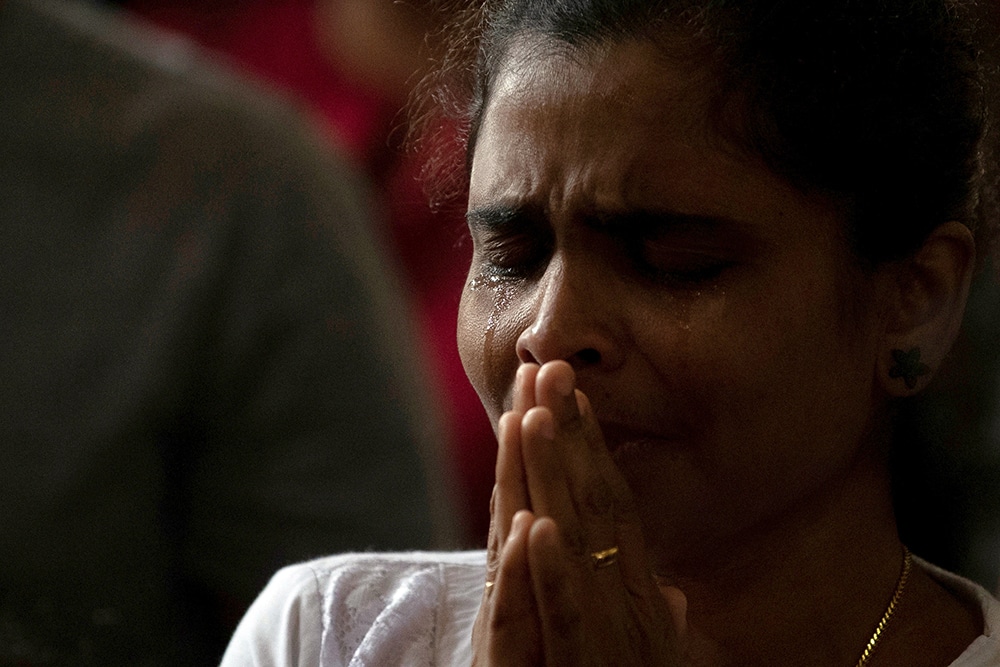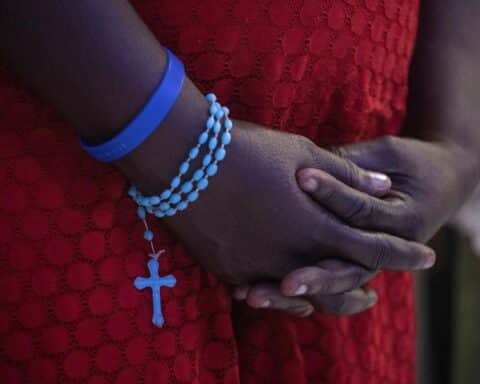Every day, 13 Christians are killed for reasons tied to their faith; 12 churches or buildings, like schools or hospitals, are attacked or closed; 12 Christians are arrested and incarcerated without trial; and five Christians are kidnapped.
Anti-Christian persecution in the world is an increasingly alarming and widespread problem, according to the annual report provided by Open Doors, an international network that since 1955 has been granting material and spiritual help to persecuted Christians in 60 countries.
The director of Open Doors Italy, Cristian Nani, laments: “Among the rights affirmed by the Universal Declaration of Human Rights, religious freedom is an orphan right, because it was born and abandoned at the mercy of historical and geopolitical storms.
“It rests on the affirmation of the rights of the person. It is freedom also to reject all religions, or to embrace any or all religion and to change them in the course of one’s life. This simple concept should motivate both the most religious and the least religious,” he says.
Every year, Open Doors examines the violations of Christians’ religious freedom throughout the world. Then it compiles a World Watch List of countries where the persecution reaches a “high,” “very high” and “extreme” level. The Open Doors 2021 Report determined that 309 million Christians live in countries with “very high” or “extreme” levels of persecution. The previous year, it was 260 million.
Open Doors’ Italian section, based in Verona, just presented the report in Rome to journalists who specialize in the Vatican and religious issues, giving them a world map color-coding the countries with “extreme” persecution as red, and those with the “very high” persecution as orange; the result is a vast red and orange wave seen from Morocco to Southeast Asia, including a big part of Africa and Asia, as well as Colombia and Mexico.
North Korea since 2002 has maintained first place for worst persecution, and is followed by the Islamic countries of Afghanistan, Somalia, Libya and Pakistan. Moreover, Islamic violence is growing especially in sub-Saharan Africa. According to the United Nations High Commissioner for Refugees, the area around Mali, Burkina Faso and Niger is becoming the epicenter of the world’s most serious displacement crisis. There are extremist groups committed to waging jihad (“holy war”) against “infidels” (Christians above all) because it is “their fault that God is punishing humanity with the coronavirus. In addition, many Christians reported that the pandemic lockdown made them easy targets for Islamic extremists, often with the authorities’ complicity.
Cristian Nani said that “in 40 countries of the top 50 of the 2021 list, the so-called Islamic oppression is a source of Christian persecution. However, every possibility of dialogue, such as that undertaken by Pope Francis, can be a vehicle for a good, both for Christian minorities in Islamic countries and for Islamic majorities, because Christ’s message of ‘love of neighbor’ elevates any society.”
“If there is one thing that a global pandemic should have taught us,” Nani told Our Sunday Visitor, “it is that we must pursue the good, there is no alternative. We must invest in the good of our neighbor.”
The report examines the period from Oct. 1, 2019–Sept. 30, 2020, marked by the global health emergency. In many cases, the pandemic has aggravated the abuses and oppression of which Christians are ordinarily victims.
Open Doors’ partners in India have provided aid to more than 100,000 Christians, since many of them — around 80% — reported being turned away from aid distribution centers. Therefore, many have been forced to walk miles and keep their Christian identity hidden in order to get help. Similar appalling episodes, according to Open Doors, also happened in Myanmar, Nepal, Vietnam, Bangladesh, Pakistan, Malaysia, Yemen, Sudan, Central Asia and North Africa.
In many cases, newly converted Christians who abandoned their country’s majority religion are aware they risk losing the support of parents, families, tribes and communities. Those who have lost their source of income due to COVID cannot rely on anyone else to survive. The pandemic has forced many of them to shut themselves up at home with their oppressors — family members who do not accept conversions to Christianity. This has produced an exponential increase in domestic violence, because for many Christians, work, school and other commitments away from home are a necessary relief from domestic assaults and physical and psychological abuse. Another even more shocking field of abuse, reports Open Doors, are forced marriages and conversions of young women.
Only the number of closures, attacks and destruction of churches and related buildings, such as schools or hospitals, is largely in decline: 4,488 closures in the 2021 report, compared to 9,488 in 2020. But of these, 3,088 occur in China, according to data, which is likely underestimated.
Also noteworthy is that in one year, China rose from 23rd to 17th on the World Watch List. Since 2018, participation in any religious activity is prohibited for minors under the age of 18. The Chinese authorities are endeavoring to propagate a Christian doctrine reinterpreted from the perspective of socialist values. In a schoolbook of ethics, as reported by Open Doors, Jesus saves the adulterous woman from those who wanted to stone her, then he himself stones the woman saying: “I, too, am a sinner. But if the law could only be applied by sinless men, the law would be dead.”
Another factor contributing to global Christian persecution is nationalism identified with the majority religion of the people. This is the case in India, the world’s most populous country, the 10th on the list, and Turkey, the 25th. The controversial transformation of the Hagia Sophia museum in Istanbul into a mosque in July 2020, sparking outrage abroad, also helped Turkish President Erdogan meet the expectations of his nationalist electorate.
In the World Watch List 2021, there is, surprisingly, no shortage of Catholic countries such as Colombia (30th place) and Mexico (37th place), where, due to organized crime, bishops, priests and even Protestant pastors who hinder their criminal activity are blackmailed, attacked, robbed and even killed.
Religious persecutions in the world mainly concern Christians, but not only. What does Open Doors do for non-Christians? “We were born to give concrete help to persecuted Christians,” Nani told Our Sunday Visitor. “But in our advocacy for persecuted Christians in governments and institutions, we naturally appeal to everyone’s right to religious freedom.”
“This promotes the pluralism of faiths. Thus, a culture of tolerance is generated that is good for all minorities and, better said, for all societies in general.”
Deborah Castellano Lubov writes from Rome.





